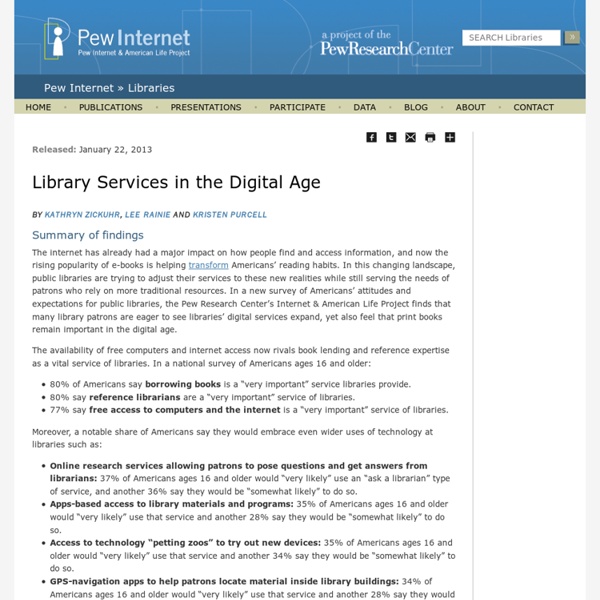El Arte Funcional, el gran libro de texto de la infografía periodística
Hoy sale a la venta 'El Arte Funcional', el esperado libro de Alberto Cairo. He tenido el placer de leerlo y no puedo más que recomendarlo. Si alguna vez fuera profesor de infografía en una Universidad, tengo claro que esta sería la lectura inicial que mandaría a los alumnos. Nigel Holmes (nada más y nada menos): "Es la guía más completa y sensata sobre gráficos informativos y su uso en el mundo real que conozco" Y es cierto que es útil. Mario Tascón: "Cairo es de los pocos profesionales que sabe combinar la práctica diaria con la academia" Y es que dentro de ser un libro teórico, muchas de las cosas que se dicen se explican con casos prácticos que permiten entender su aplicación en la infografía en medios. Posiblemente la publicación más importante en el mundo de la infografía periodística en muchos, muchos años.
La española Bubok lanza un editor gratuito de libros electrónicos
Con la llegada de los libros electrónicos se hace cada vez más sencillo editar y publicar tu propio libro, así que si es una meta que tienes en la vida, vale que sepas que hay en la Red herramientas que pueden facilitarte el alcanzarla. Una de ellas es BubokWriter, una herramienta gratuita que permite crear de una manera sencilla libros electrónicos en formato ePub, es decir, el formato estándar que se adapta a los diferentes tamaños de las pantallas de los múltiples lectores de libros electrónicos del mercado como el iPad, iPhone, Kindle o el Papyre. BubokWriter te permite escribir el libro directamente en su plataforma en la Web, que funcionado de forma similar a un editor de texto cualquiera, y que permite agregar imágenes o bien importar textos desde un archivo Word. Luego que el libro está finalizado, la plataforma le da la opción al autor para publicarlos en la Red y venderlos a través de Bubok. Link: Bubok Writer
"10 años de vivencias en educación virtual" - Net-Learning - Libro de descarga gratuita
Libro de descarga gratuita: “10 años de vivencias en educación virtual” – Net-Learning 10 años de vivencias en educación virtual / Susana Trabaldo … [et.al.]. – 1a ed. – Buenos Aires : Net-Learning, 2012. Descarga gratis “10 años de vivencias en educación virtual” – Net-Learning aquí Net-Learning festeja su 10mo aniversario de trabajo en Educación a distancia y lo hace entregando este libro a todos los que estén interesados en conocer más de esta metodología educativa. Algunos artículos incluidos en el libro: Ampliando el horizonte del aula, nuevas modalidades de Tutoría – Beatriz AquinoUna revisión de la taxonomía del aprendizaje y apps educativas en el contexto del Mobile-Learning – Raúl Santiago CampiónFormación Continua Online para Profesores de Idiomas – Liliana Beatriz LunaE-portfolios ¿por qué las dudas? Comparte este artículo! Tema: 07.
Education for a green society
There is a strong connection between the business world and the modern institution of schooling. Historians of education have explained how schools as we know them were profoundly shaped by the influence of business leaders and by educators who adopted theories and techniques from the economic realm of society. Many major turning points, new initiatives, and efforts to reform public education have come in response to demands for better trained workers or more efficient management of human resources. For example, in the 1840s Horace Mann and his peers justified their efforts to organize state school systems, in large part, on the basis of economic productivity and prosperity; they promised factory managers that educated workers would demonstrate more “docility” and “punctuality,” among other virtues. In the early 1900s, school administrators widely adopted the tools of “scientific management” to guarantee maximum “efficiency.” 1. 2. 3. 4.
Poetas políticos y ejecutivos bohemios
Luis García Montero [En José M. Mariscal & Carlos Prado (eds.), Hace falta estar ciego (Poéticas del compromiso para el siglo XXI), Madrid, Visor, 2003, pp. 11-23.] Una vez más un libro sobre literatura y compromiso. Pocos debates intelectuales parecen tan aburridos, tan estudiados, tan pasados de moda, tan irritantes, tan falseadores. Pero, al mismo tiempo, pocos debates siguen tan vivos, exigiendo matizaciones, respuestas más allá de la moda o de las coyunturas personales, y no sólo por los requerimientos circunstanciales de la opinión pública, sino por la lógica privada de la creación. Por eso se ha repetido, y con razón, que los poetas puros son tan sociales como los poetas comprometidos. Después de los fracasos de la acción política directa, de la degradación de las esperanzas republicanas y de la farsa de la Restauración, los intelectuales buscaron un marco diferente, más sincero y más útil que las declaraciones huecas de la España oficial.
100 Great Resources for Design Inspiration
Finding inspiration is not always as simple as it sounds, whether you've been designing for years or only weeks. Below is a collection of 100 great web resources to find inspiration and direction on your next project, whether it be online or in print. These range from galleries of graphic and web design to online magazines and a few unconventional sources of inspiration. Online Galleries Veer: Ideas - A huge idea gallery from stock photography company Veer formatted as a blog and including news and updates from the company itself. Delicious CSS - A CSS web design gallery that was founded because of the lack of features for tracking design ideas on traditional social bookmarking sites. Raster - A regularly-updated gallery of photography and art with collections broken into “chapters.” CSS Galaxy - A very simple French gallery of CSS website designs that selects sites based on their standards-compliance, technique, coherent graphic design, and aesthetic. Blogs Online Magazines



